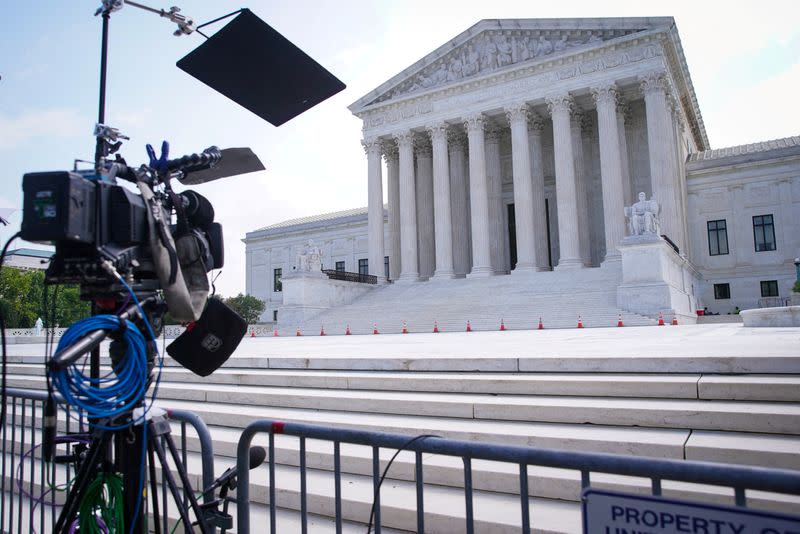Explainer-What is the US SEC's in-house court under Supreme Court review?

By Michelle Price and Chris Prentice
WASHINGTON/NEW YORK (Reuters) - The U.S. Supreme Court is due to rule in coming days on whether to curtail the Securities and Exchange Commission's use of in-house judges to adjudicate enforcement actions, with potentially big implications for other agencies.
The court last year decided to take up the Biden administration's appeal of a lower court's ruling that deemed the SEC's in-house tribunal proceedings unconstitutional.
Here are more details on the case and its implications.
WHAT IS THE SEC's IN-HOUSE COURT?
The SEC has a handful of in-house administrative law judges who focus on adjudicating enforcement actions referred to them by the agency's commissioners.
According to the SEC, the judges independently adjudicate the SEC's allegations against the individual or entity. They can conduct public hearings similar to federal bench trials, issue subpoenas, and rule on motions and the admissibility of evidence.
The judge prepares an initial decision determining whether sanctions are warranted which the commissioners then review.
The process is generally faster than suing wrongdoers through the courts, and the judges have expertise in securities law.
WHY IS IT BEING CHALLENGED?
The Supreme Court case stems from a challenge brought by Texas-based hedge fund manager George Jarkesy, whom the SEC fined and barred from the industry in 2013 after determining he had committed securities fraud.
An SEC administrative judge found Jarkesy and his firm Patriot28 violated SEC laws including by misrepresenting the value of his fund's holdings. The SEC ordered them to pay a $300,000 civil penalty and Patriot28 to disgorge nearly $685,000 in ill-gotten gains.
Jarkesy successfully challenged the legality of the in-house system in the New Orleans-based 5th U.S. Circuit Court of Appeals, which in 2022 found that in-house proceedings violated the U.S. Constitution's Seventh Amendment right to a jury trial.
Other conservative and business groups which support Jarkesy have also said the agency has an unfair advantage litigating cases before its own judges.
The Supreme Court, which has a 6-3 conservative majority, is deciding an appeal of the 5th Circuit ruling brought by President Joe Biden's administration.
WHICH WAY IS THE COURT LEANING?
In a November hearing, conservative justices signaled skepticism toward the legality of the system, focusing on the 5th Circuit's finding that the in-house proceedings are unconstitutional.
The conservative justices expressed concern that SEC administrative proceedings are conducted for certain charges, such as fraud, without a jury, when similar cases alleging fraud in federal court would have one.
"It does seem to me to be curious that - and unlike most constitutional rights - you have that right until the government decides that they don't want you to have it. That doesn't seem to me the way the Constitution normally works," Chief Justice John Roberts said.
WHAT ARE THE IMPLICATIONS OF CURTAILING THE SYSTEM?
A decision by the justices to scrap or limit the system is unlikely to dramatically shake things up at the SEC.
The agency has already scaled back its use of in-house judges after a separate July 2018 Supreme Court decision found the SEC's process for selecting the in-house judges was unconstitutional, agency data shows.
However, the court's ruling could have major implications for other federal agencies such as the Environmental Protection Agency, the Labor Department and the Commodity Futures Trading Commission, who also have in-house judges.
An inability to use those in-house tribunals could slow enforcement proceedings, tie up additional resources, and hamper agencies' efforts to target misconduct, legal experts said.
(Additional reporting by Andrew Chung and John Kruzel; Editing by Nick Zieminski)


